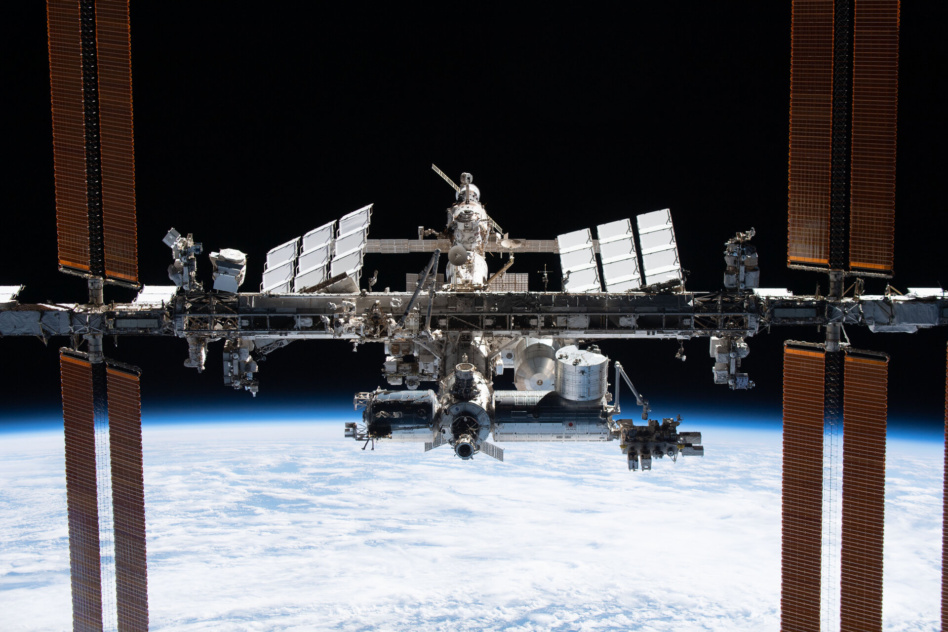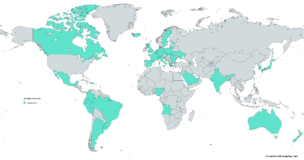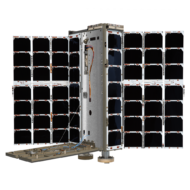The world was busy in space this year. All together, there have been 174 successful orbital launches so far in 2022, and the world’s space agencies have pulled together over the course of the year to make major strides in science, technology, and exploration. Read on for our recap of the top events from space agencies around the globe.
USA
NASA had a banner year by all accounts. Between successfully deploying JWST in partnership with CSA and ESA, slamming a spacecraft into an asteroid with the DART mission, and launching Artemis I last month, NASA’s science and exploration achievements this year speak for themselves. Stay tuned for today’s edition of Parallax for a closer look at the year’s top achievements in space science.
“2022 will go down in the history books as one of the most accomplished years across all of NASA’s missions,” administrator Bill Nelson recently said.
In 2022, Congress also passed NASA’s first authorization bill in five years, broadly affirming federal support for the agency’s key programs. Next year’s looking bright for the agency, too. NASA is set to receive a 6% funding boost in the new year, with an emphasis on science and exploration programs.
Europe
Europe has plenty to be proud of in 2022. The war in Ukraine presented particular challenges for Europe, which depended heavily on Soyuz rockets for launch. After that access was cut off, ESA looked elsewhere for rides to orbit. Its ExoMars rover mission, for example, had to be postponed, but a recent increase in funding means that things are looking up.
However, launch may be a challenge for the continent. ESA was project manager for the Avio-built Vega C rocket, which made its successful debut flight this year but failed during a second mission this week.
Looking ahead to 2023, ESA received a 17% funding boost, the largest increase since it was founded in 1975. 19% of that funding is going toward science activities, with transportation, exploration, and Earth observation (EO) prioritized after that.
Russia
Russia’s legacy in space was marred in 2022 by the instigation of war in Ukraine. After Russia invaded the country in March, the US and Europe placed major sanctions on the country that effectively cut off nearly all cross-border supply chains and partnerships.
Roscosmos also saw a shake-up in its leadership during the year. Former director Dmitry Rogozin, known for his inflammatory remarks and threats, was replaced with Yuri Borisov, who previously held a post as deputy prime minister for defense and space.
The ISS partnership was the exception to the rule, remaining intact throughout the year. Though Russia announced its intention to begin building its own space station as soon as possible, it looks like NASA and Roscosmos will remain partners in LEO until at least 2030.
The war is also directly hurting Russia’s ability to keep up with the US and China: Roscosmos recently said it would seek to borrow up to $710M and will issue bonds to finance new satellite programs.
China
China came in second in overall number of launches and mass-to-orbit in 2022, with 60 successful orbital launches.
CNSA, China’s space agency, successfully completed the assembly of Tiangong, or “heavenly palace,” in LEO this year. The orbiting space station’s core module, Tianhe, launched last year, and the two laboratory modules, Wentian and Mengtian, launched this year. The station has been crewed since June 5.
Highlights from other big players
India: India rose to the challenge of helping Europe regain a launch capability after losing access to Soyuz rockets. ISRO’s commercial arm signed an agreement with OneWeb to launch some of the satellites that were left stranded, and completed that first launch in October. ISRO also has some ambitious projects of its own to look out for, including the debut of its SSLV rocket and the launch of its Chandrayaan-3 lunar lander.
Japan: JAXA didn’t reach orbit this year, but it still made contributions to spaceflight. The agency sent an astronaut to the ISS in 2022, analyzed samples from the asteroid Ryugu, and sent a pair of science cubesats to the Moon along with Artemis I.
South Korea: South Korea is dedicating more time and resources to bolstering its space capabilities of late. It launched its own rocket, Nuri, for the first time in June, carrying spy satellites to orbit. The country’s space agency, KARI, also launched a lunar orbiter on a Falcon 9 earlier this year. Finally, the company has laid out a bold space economy roadmap and aims to create KASA, a new space agency.
Iran: Iran doesn’t reveal much about its space activities and aspirations, but satellite imagery showed that there were likely a few failed launches this year. In November, though, Iran announced that it had successfully placed two satellites in LEO using the Ghaem-100 rocket.
Brazil: Brazil’s space agency is open for business, its president, Carlos Moura, told Payload back in May. Virgin Orbit established a Brazilian subsidiary earlier this year and is planning launches from the Alcântara spaceport. “I believe we are in a good place to invest and find new partnerships, not only for our internal market but as a platform for the whole supply chain,” Moura said. In the coming weeks, South Korean startup Innospace is set to launch its Hanbit TLV test vehicle suborbitally from Alcântara.
And there’s a whole lot more where that came from…

Nearly 80 nations have space agencies. In a recent discussion with the heads of six up-and-coming space agencies at the Abu Dhabi Space Debate, leaders emphasized a quite constructive experience with launching/operating satellites, developing downstream applications for space-based data, and working with their larger counterparts.
In the Gulf…Salem Butti Salem Al Qubaisi, the space agency’s director general, told us that “young engineers getting the knowledge necessary for building our baseline in the space sector…is probably the most important return on investment.” The UAE is the fifth nation to successfully send a probe to Mars. Next year, it will launch an astronaut to the ISS with SpaceX, Axiom, and NASA on the Crew-6 mission, and it has plans for an asteroid mission in 2028.
Mohamed Al Aseeri, the CEO of Bahrain’s space agency, told Payload that the kingdom is honing its space chops by 1) developing “a small satellite that’s being built completely by a Bahraini team,” and by 2) sending engineers to the US, India, the UK, and other nations to learn from their counterparts.
The view from all around Europe…“By joining forces, we can do things that are much larger than what we could do alone,” Christian Hauglie-Hanssen, director general of the Norwegian Space Agency, told Payload. ESA has made groundbreaking strides in EO especially for nearly five decades, he said, and the whole has been greater than the sum of its parts.
Ricardo Conde, head of the Portuguese Space Agency, added that governments “are paying more attention to space because they’re starting to believe that some solutions [to environmental problems] could be solved by space.” Portugal in particular taps satellites to monitor “climate change, the impact of wildfires, and the erosion of coastal areas,” which are all issues the country is especially concerned about.
In Eastern Europe, Poland has 40+ years of experience developing science instruments from space. Space “was a cornerstone for industry development 10 years ago,” POLSA’s Aleksandra Bukala told Payload. Since then, the country has been able to successfully grow its space industrial base and scientific community.
And how about in Southeast Asia? The Philippine Space Agency started in 2019. Its first and current director general, Joel Joseph S. Marciano Jr., said his nation has a surgical focus on “value chains in the upstream and downstream to identify gaps, leverage strengths, and find partnerships” that will drive economic and scientific value back to the country. Among other things, the Philippines has deployed six smallsats in partnership with Japan for EO.




